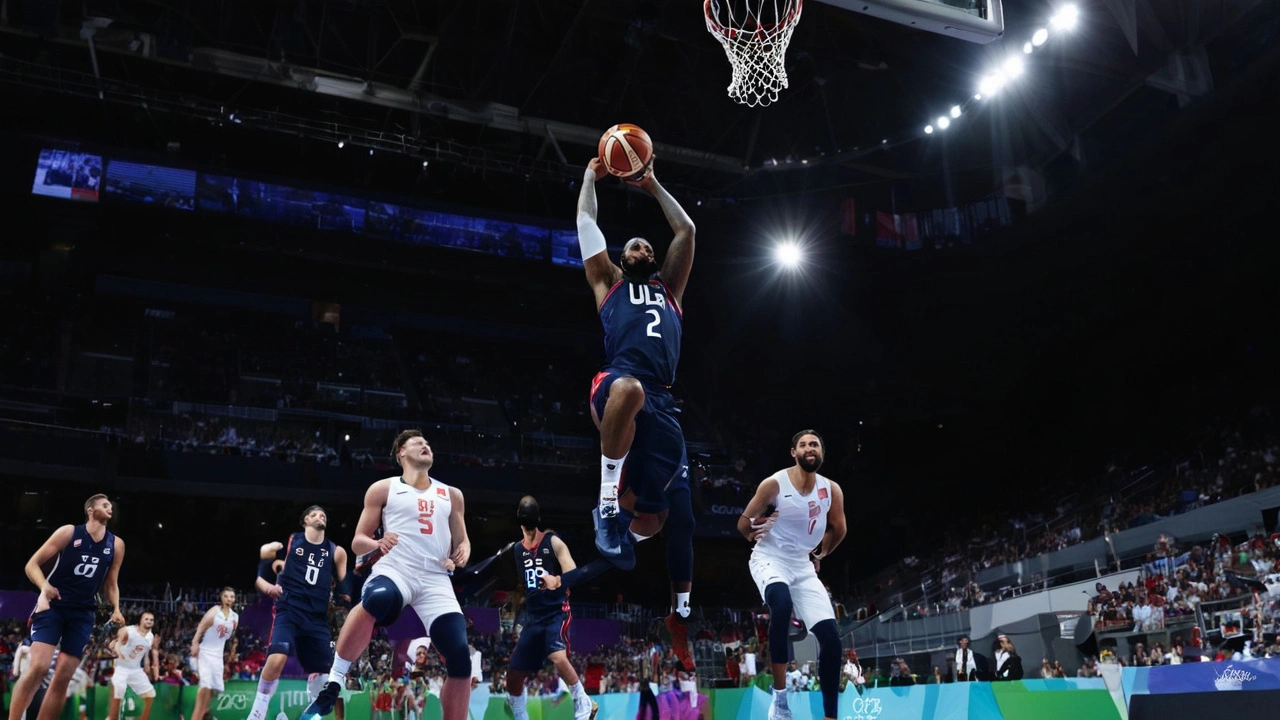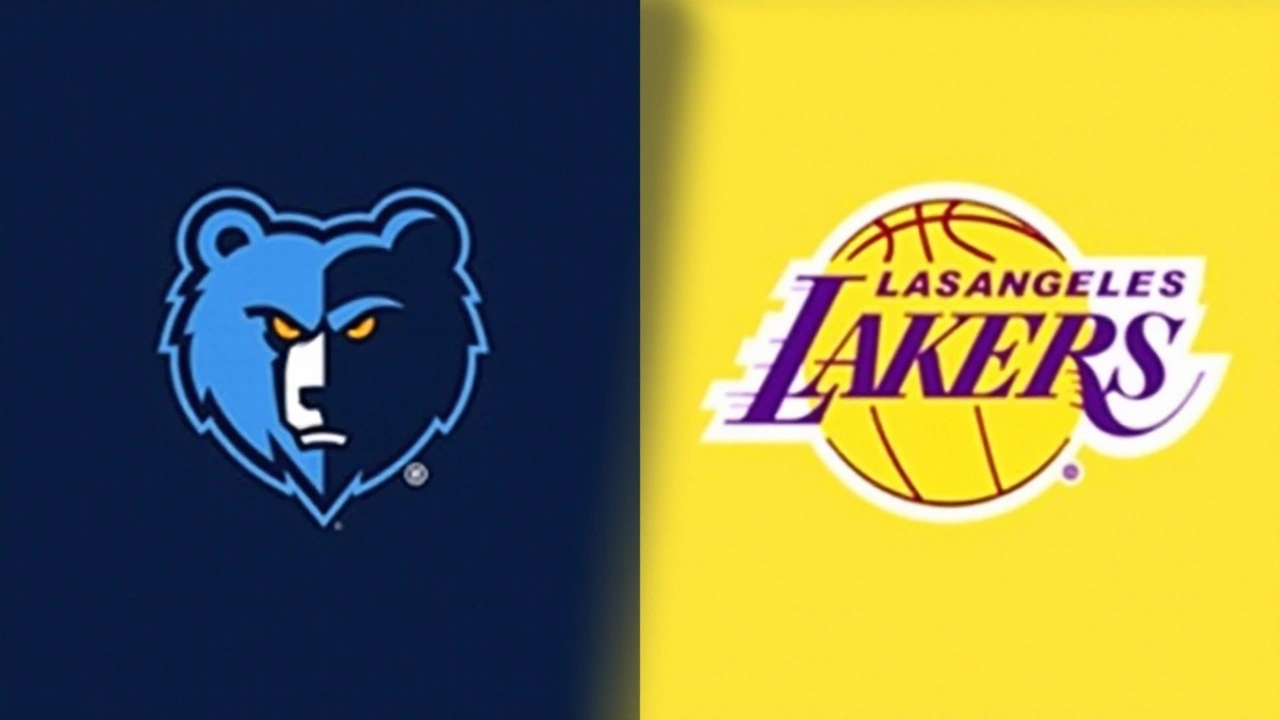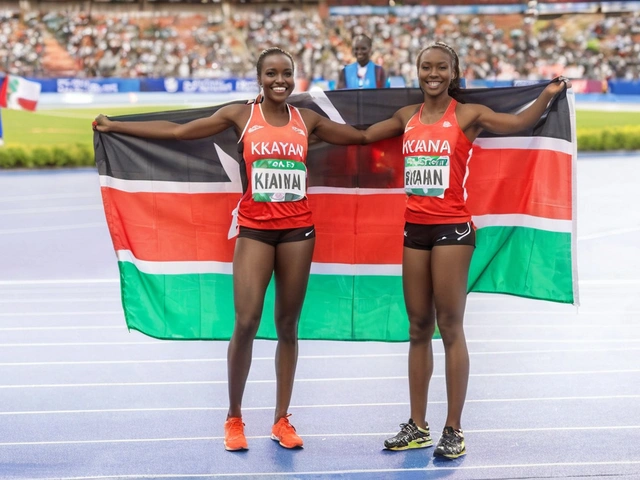LeBron James and Kevin Durant Shine in Olympic Opener Against Serbia
In a thrilling start to their Olympic campaign, Team USA showcased their basketball supremacy with a commanding 110-84 win over Serbia at the Saitama Super Arena in Japan. Fans around the world watched as LeBron James and Kevin Durant led the American team to victory, continuing the United States' storied tradition of basketball excellence in the Olympic Games.
Dominant Performances by Star Players
LeBron James, a seasoned Olympic veteran playing in his fourth Games, dazzled with an impressive stat line, contributing 24 points, 4 rebounds, and 5 assists. His leadership and experience were palpable on the court as he orchestrated the team's offense and set a relentless pace. Kevin Durant, no stranger to the international stage himself, added 23 points, 5 rebounds, and 3 assists, showcasing his versatile scoring ability and defensive acumen. Together, James and Durant formed an unstoppable duo that Serbia struggled to contain throughout the contest.
The American team took control of the game from the outset, building a comfortable lead early and maintaining their dominance. They led by 16 points at halftime, a cushion that allowed them to manage the game effectively in the second half. Serbia, despite their best efforts, could not recover from the early onslaught and found themselves playing catch-up the entire game.
Strong Support from the Bench
While the spotlight often shines on the starters, Team USA's bench players made significant contributions that bolstered their victory. The bench outscored their Serbian counterparts 44-21, highlighting the depth and talent of the American squad. Players like Zach LaVine and Draymond Green brought energy and intensity off the bench, ensuring that there was no drop-off in performance when the starters took a breather. This depth is one of the team’s greatest strengths and a key factor in their continued success on the international stage.
Serbia's Standout Performer
Despite the loss, Serbia had bright spots, most notably the performance of Nikola Jokić. The NBA MVP led his team with 23 points, 5 rebounds, and 4 assists, demonstrating why he is considered one of the best players globally. His efforts kept Serbia within striking distance at times, but it was not enough to overcome the balanced and potent offensive attack from Team USA.
Extending the Streak
The victory against Serbia marks the 56th consecutive Olympic win for the United States, a testament to their dominance in international basketball. This streak dates back to the 2004 Athens Olympics, symbolizing a near two-decade reign of excellence. The team’s focus now shifts to their next challenge, a matchup against France, a team brimming with talent and capable of presenting a formidable challenge to the Americans.
Looking Ahead
As the tournament progresses, Team USA will undoubtedly face stiffer competition. However, the confidence gained from a strong opening performance sets a positive tone for the games ahead. The blend of veteran presence and youthful exuberance on the roster creates a balanced team poised to handle the pressures of Olympic competition. Coach Gregg Popovich will continue to emphasize teamwork and defensive intensity as critical components of their strategy, aiming to extend their winning streak even further.
The world will be watching as Team USA continues its journey in the Olympic basketball tournament. With experienced leaders like LeBron James and rising stars contributing in significant ways, the American team remains the favorite to claim the gold medal once again. All eyes now turn to their upcoming game against France, where fans expect another display of exceptional basketball prowess.








Bruce Moncrieff
July 29, 2024 AT 03:42 AMMan what a way to start the Games LeBron and KD just owned Serbia they were on fire the whole game and the bench kept it lit
Dee Boyd
August 6, 2024 AT 01:31 AMFrom an ethical standpoint the dominance displayed by Team USA raises concerns about competitive equity the narrative frames this victory as a testament to superior training methodologies however the underlying infrastructure disparities across nations cannot be ignored the reliance on NBA-level talent essentially skews the international basketball ecosystem toward a monopolistic paradigm
Carol Wild
August 13, 2024 AT 23:20 PMIt is evident that the United States’ continued hegemony in Olympic basketball is not merely a product of individual brilliance but rather a manifestation of a covert operational matrix that subtly manipulates global sporting outcomes, an observation that many independent analysts have quietly documented over the past decade. The systematic funneling of resources into elite development pipelines, starting at a pre‑adolescent level, creates a pipeline of talent that is insulated from the socioeconomic variables that affect other nations, thereby ensuring a perpetual advantage that is difficult for any rival federation to dismantle. Moreover, the media apparatus, heavily funded by corporate sponsors with vested interests in the NBA brand, perpetuates a mythos surrounding figures like LeBron James and Kevin Durant, effectively drowning out dissenting voices that might question the fairness of such a lopsided playing field. One could argue that this orchestrated dominance is reinforced by the strategic placement of American coaches in overseas leagues, subtly influencing tactical philosophies and undermining the organic evolution of alternative styles of play. The paradox lies in the fact that while fans worldwide celebrate the spectacle of high‑octane basketball, they simultaneously remain oblivious to the structural inequities that render the competition more of a performance art than a genuine contest of equals. Historical data points to a consistent pattern where the United States secures Olympic gold with minimal resistance, a trend that correlates with the expansion of the NBA’s global market share, suggesting a symbiotic relationship between commercial success and sporting supremacy. In addition, the deployment of cutting‑edge sports science technologies, which are often guarded as proprietary, further widens the gap, as nations lacking comparable research facilities are forced to rely on outdated methodologies. The narrative propagated by mainstream outlets conveniently omits these nuances, focusing instead on the heroics of marquee players while glossing over the systemic advantages that underpin their achievements. Critics who attempt to highlight these disparities are frequently labeled as conspiratorial or unpatriotic, a rhetorical tactic designed to stifle legitimate discourse. The international basketball federation’s governance structures, too, appear complicit, as voting blocs dominated by Western interests consistently favor rule changes that benefit a fast‑paced, athletic style of play-precisely the style that American athletes epitomize. Consequently, the ostensibly level playing field of the Olympic tournament becomes a carefully curated stage where outcomes are, to a significant degree, predetermined by a confluence of economic, political, and technological forces. While it is undeniable that LeBron James and Kevin Durant possess extraordinary skill sets, attributing the victory solely to their individual performances ignores the entrenched ecosystem that cultivates and sustains such talent. This ecosystem, operating behind the scenes, orchestrates a narrative of inevitability, making the notion of an upset not just improbable but structurally impossible under current conditions. The real question, therefore, is not how America won this particular game, but how the global sporting community might recalibrate the balance of power to ensure that future Olympics reflect true competitive parity rather than a reenactment of hegemonic dominance.
Rahul Sharma
August 21, 2024 AT 21:09 PMAnalyzing the statistical breakdown, LeBron contributed 24 points, 4 rebounds, and 5 assists, while Durant added 23 points, 5 rebounds, and 3 assists; the bench collectively supplied 44 points, a figure that underscores the depth of the roster, and the defensive intensity manifested in a 16‑point halftime lead that the USA preserved through disciplined rotations, strategic timeouts, and effective half‑court sets, all orchestrated under Popovich’s seasoned coaching philosophy.
Emily Kadanec
August 29, 2024 AT 18:58 PMyeah tht stats r crazy but lol u cant forget the vibe of the game its just sooo fun
william wijaya
September 6, 2024 AT 16:48 PMIt's clear that the energy off the bench not only kept the scoreboard ticking but also sustained a psychological momentum that resonated throughout the second half, reinforcing the notion that team cohesion can sometimes eclipse raw statistical dominance, especially when players communicate seamlessly within the system.
Lemuel Belleza
September 14, 2024 AT 14:37 PMThey just coasted, nothing special.
faye ambit
September 22, 2024 AT 12:26 PMWhen we examine the broader cultural narrative surrounding such victories, we see a reflection of collective aspirations, a symbolic affirmation of perseverance that transcends the confines of the hardwood and speaks to a universal human desire for triumph against adversity.
Subhash Choudhary
September 30, 2024 AT 10:15 AMThat was a pretty solid opening for the US, the flow felt natural and the bench really stepped up without any drama.
Ethan Smith
October 8, 2024 AT 08:04 AMIndeed, the statistical disparity between the starters and bench underscores the team's depth, as the auxiliary players contributed a 44‑21 advantage, highlighting a balanced roster capable of sustaining performance across all quarters.
Evelyn Monroig
October 16, 2024 AT 05:53 AMThe real story behind this blowout is the hidden agenda pushed by global sports financiers who manipulate tournament outcomes to maximize sponsorship revenue, ensuring that marquee NBA stars dominate the headlines while suppressing any legitimate challenge from emerging basketball nations.
Gerald Hornsby
October 24, 2024 AT 03:42 AMSounds like a plot, 😂